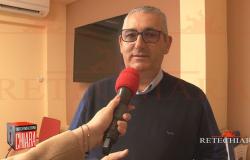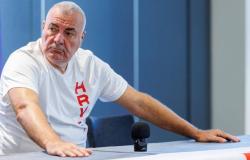
Genoa. “It is proven, indisputably, that aSome fans protested against the corporate choices of the then president Preziosi and that, especially in the months between 2016 and 2017, the fracture between fans and club has become more acute and also that many fans have become closer in an uncivilized manner, if not violent or threatening, unwelcome players” but “however, there is no evidence that the defendants attempted to obtain further benefitsprivate or individual nor who have joined together to commit an indeterminate series of crimes, where crimes do not mean simple protests agreed in public meetings held in the headquarters in via Armenia 5R”. These words written at the beginning of the chapter dedicated to the ‘conclusive considerations’ are enough to explain why the Genoa court presided over by judge Roberto Cascini (assistant judges Valentina Vinelli and Riccardo Crucioli rapporteur of the sentence) which on 15 May acquitted 14 rossoblù ultras of crime of criminal association aimed at committing violent gestures to contest corporate choices and, in the case of Massimo Leopizzi and Arthur Marashi, also of other crimes starting with extortion. A sentence that scuttled – at least in the first instance – the maxi investigation of the Genoa Prosecutor’s Office who coordinated the investigations of the flying squad – who he had asked for a total of 33 years in prison.
“According to the investigators, the group of fans forced the company, in the person of the CEO, with threats Alessandro Zarbano, to pay the money through invoicing for non-existent operations in favor of Sicurart of which Leopizzi was a hidden partner. But according to the court, not even this crime has been proven because “extortion without extorted subjects is not foreseen by the penal code” given that Zarbano has always denied any threat. Finally, “The hearing did not allow it to be stated that Sicurart (and therefore Leopizzi and Marashi) obtained undue economic advantages from the relationship with Genoa and 4anyjob”
The hearing “made it possible to exclude in a certain way – the judge writes – that the defendants, with the exception of Leopizzi and Marashi, had some interest in obtaining profits and advantages” from their conduct. “no tickets provided free of charge, no privileged entrance, no concessions, no contact having any form of economic, sentimental value or even linked to the passion for the football team”.
Therefore it would be – underlines the court – “a criminal association made up of six members who are used, not knowing it, like soldiers unaware they are fighting a war, by two others who have economically illicit purposes”. In other words “it is hypothesized that the ultimate goal of the association was known only to Marashi and Leopizzi, who used the other six to achieve it” says the judge when the law requires that for the association there must be at least three members aware of the goals of the association itself.
The court then contests the ongoing “modification” of the charge where the purpose of the associative crime has become no longer the economic one but rather that of “maintaining control of the ultras and interfering in corporate choices”, but not even this according to the Tribunal has been tried. “However, contesting the football club does not equate to crime” recalls Crucioli who then analyzes the various ‘objective crimes’, such as complaints against players or the team, reducing the accusation framework and remembering that most of them cannot be criminally prosecuted without a complaint.
In 182 pages of Crucioli ruling focuses on the main accused in the trial, viz Massimo Leopizzi. Furthermore, he himself had underlined it in some spontaneous declarations: “This is a trial against me”. The judge writes in the sentence: “It is Leopizzi who has contacts with organized crime, with that Mario Rossi who is well known in the Genoese judicial chronicles; it is Leopizzi who, in the testimony of the witness Carmeli, even had the availability of aweapon and which is accompanied by criminals; it is still Leopizzi, who since 2010 has been paying money to prisoners, on behalf of Genoa: or rather, on behalf of the Speloncia brigade and the Armenia 5 R club. He is therefore not an extroverted middle-aged gentleman addicted to alcohol, a little bizarre, a little gullible, and also a little too presumptuous, with a complex past full of errors to archive. It would be a mistake to diminish his personality in this way.”
But still the court highlights two important elements. The first is that “The fact that Leopizzi was a feared ultras leader, representative of many violent fans and even of the Digos, however, it is not a fact that leads – by way of mechanical automatism – to the proof of the contested crimesthe”. And second element: “If Leopizzi’s criminal caliber is beyond question and also emerged during the trial (see the hesitant depositions of many witnesses), a very different matter must be addressed for the other defendantsi” given that “the passion for football, the organization of protests, participation in fan meetings and even demonstrations are not elements that in themselves prove the commission of the crimes”.




